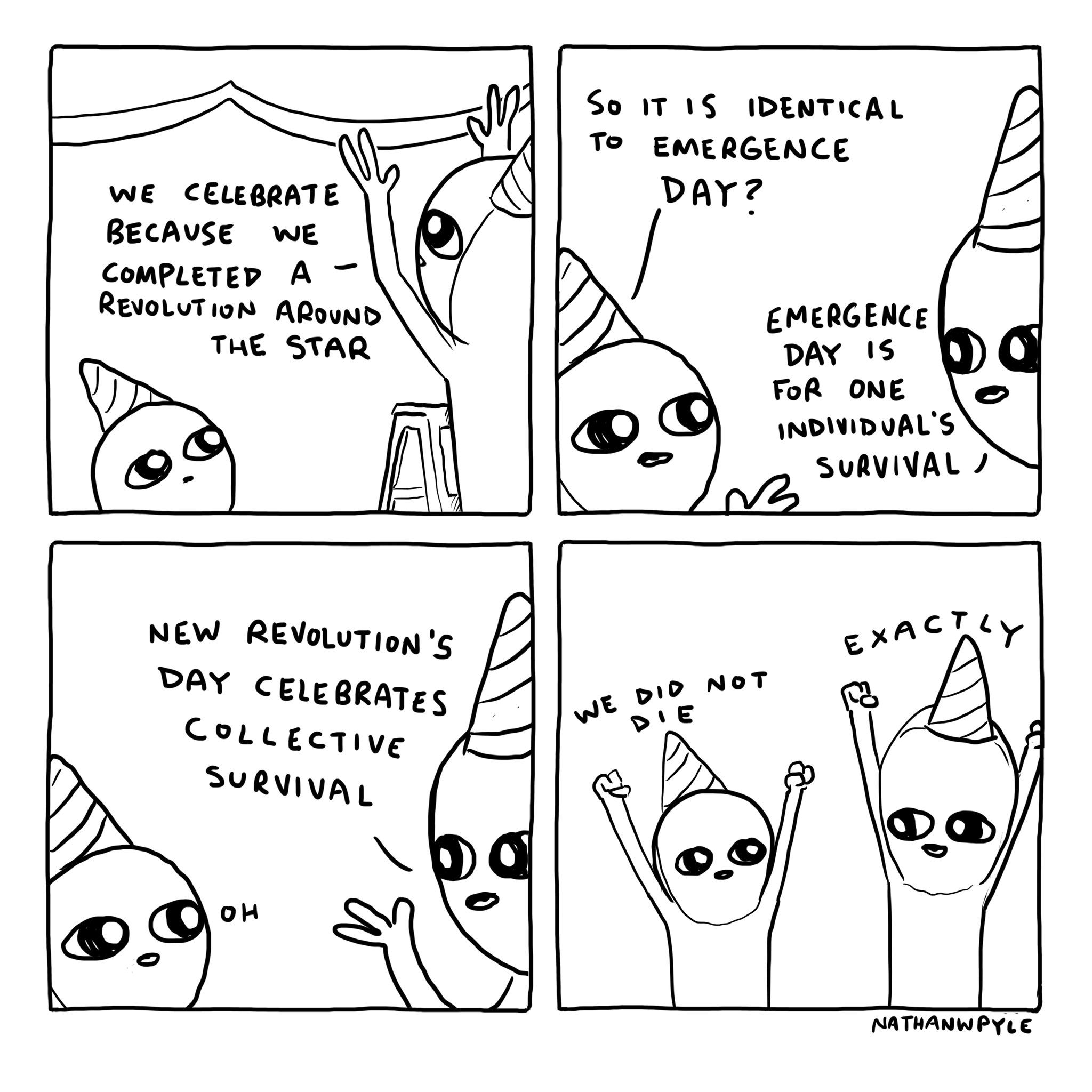We’re two days into 2020. Just a few days ago, you couldn’t go online without seeing some recap of the last decade, or go anywhere without people jokingly saying “see you next year! Oh, next decade!”
And there I’d be, suppressing the urge to go “Well, actually…” and point out that because our calendar started in the year 1 A.D., wouldn’t the next decade start on January 1st, 2021? A year from now?
Why does the year even start on Jan 1st?
The first assumption is that everyone uses the same calendar: the Gregorian calendar.
In October 1582, Pope Gregory XIII introduced the Gregorian calendar as an update to the Julian calendar. Both are solar calendars, i.e. it starts counting when the sun moves through a fixed point, and a year would last ~365 days. This is different from a lunar calendar – based on the cycles of the moon in which a month (or moonth?) would be 28 days – that would not nicely sync up with the seasons.
In the Gregorian calendar, the astronomical cycle of the earth around the sun, which is 365.2425 days long, is taken into account by skipping a leap year every 100 years. Sort of; this approximation has an error of one day every 3,030 years, or 26 seconds a year, even with the skipping leap years every 100 year but not on the 400s*.
For most things, most of the world has adopted the Gregorian calendar for their daily life somewhere between 1582 and the early 20th century, even if cultural and religious calendars were kept in parallel.
If you think too much about it, months seem completely arbitrary – except maybe solstices landing on sort of the same date – and other systems, like the Equal Month Calendar which has 13 28-day months plus an extra day or two depending on leap years – sounds more plausible.
But for all intents and purposes, the whole world has agreed that the year starts on January 1st, based on the ideas of a Medieval Pope. And when decades start would depend on Christianity too.
The year 1 A.D.
Our current calendar starts counting from 1 A.D. (or Anno Domini), with the year 1 the year Jesus was allegedly born.
Allegedly, because it wasn’t until 525 A.D. that the year was set by Dionysius Exiguus when he was devising his method to calculate Easter. Historians believe that Jesus was actually born at least a few years earlier, and not necessarily on Christmas day. In any case, 1 A.D. has now generally been adopted as “the start of counting of years” and sometimes referred to as 1 C.E. (common era) to avoid religious connotations.
But the most interesting thing about 1 A.D. – for me at least – is that there is no year 0.
The Roman numeral system had no concept of zero, and it wasn’t until the eighth century that the Arabic Numeral for zero was introduced in Europe – and eventually used widely in the seventeenth century.
If that’s the case, did we really just start a new decade?
Counting from zero
A decade is simply “a span of 10 years,” so new decades are constantly starting. We don’t celebrate them typically, except for the decades of our lives, and those that are generally considered in the calendar.
In the 20th century, we started referring to decades as groups of years having the same digits: the years 1990-1999 are referred to as the nineties (dixit nineties kid) as opposed to counting from 1 to 10 (in which case the nineties would have been from 1991-2000). You would think this is the more “mathematically correct” way of counting, but even in programming, there are systems that start counting from 0 just as a convention.
Every 10 years, and definitely at the start of the new millennium, the same discussion occurs: when do we start counting a decade/century/millennium?
A poll from a month ago shows that most Americans (64%) saw the new decade start yesterday, while about a fifth (19%) were not sure. Only 17% answered the new decade will start on January 1, 2021.
In my opinion, it doesn’t really matter. Having a new decade start on a year ending with a 0 looks nicer, and in the 21st century means we can make fun novelty glasses where the lenses fit in the zeros. I’ll continue to be pedantic and say that the decade doesn’t start until next year if only so I can forget about it and not do that “looking back on a decade” thing, ever.
In any case, whether you think the year started yesterday, or the decade, or if it was just a regular old day, have a marvelous 2020!

*The rule is that every year that is divisible by four is a leap year, except for years that are divisible by 100, with the exception on that exception for years that are divisible by 400.
Sources: in-text links

